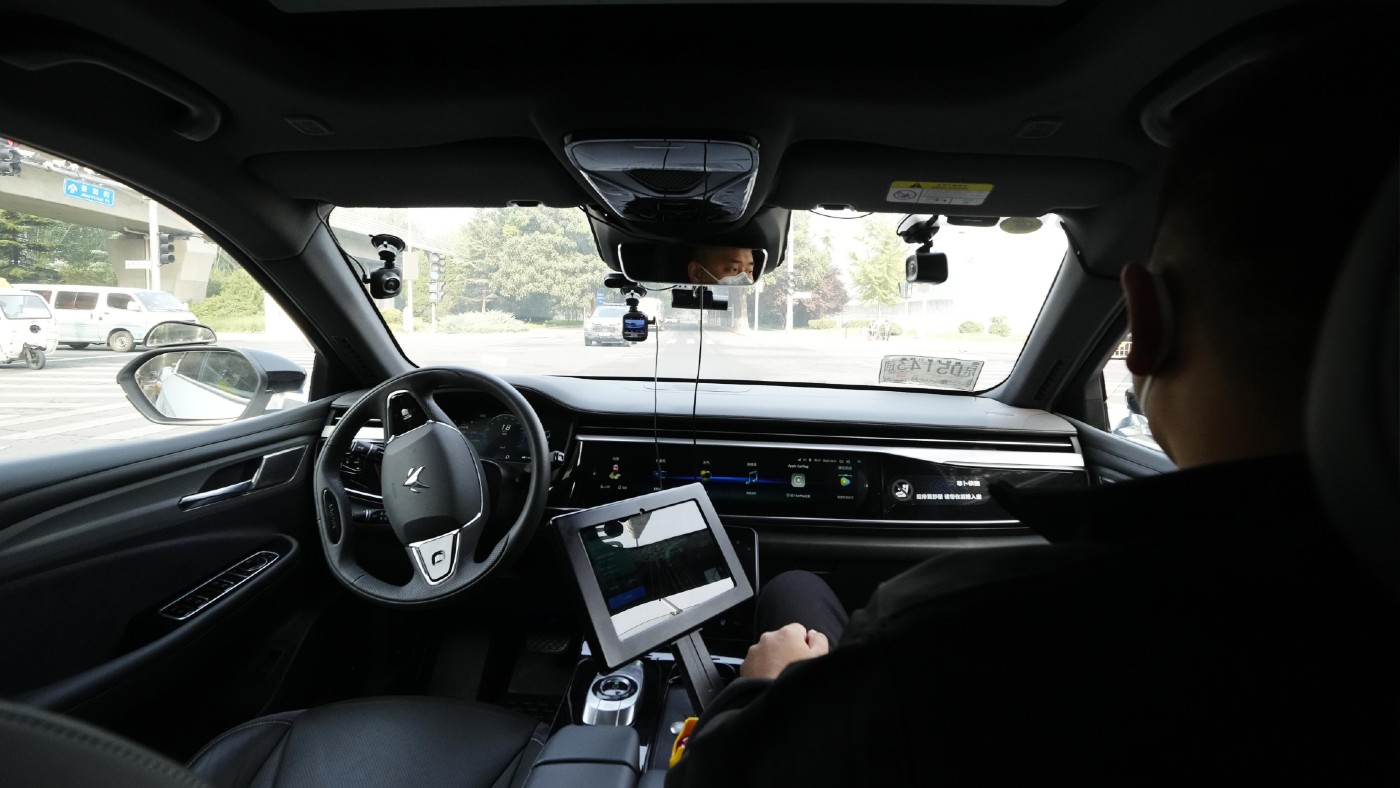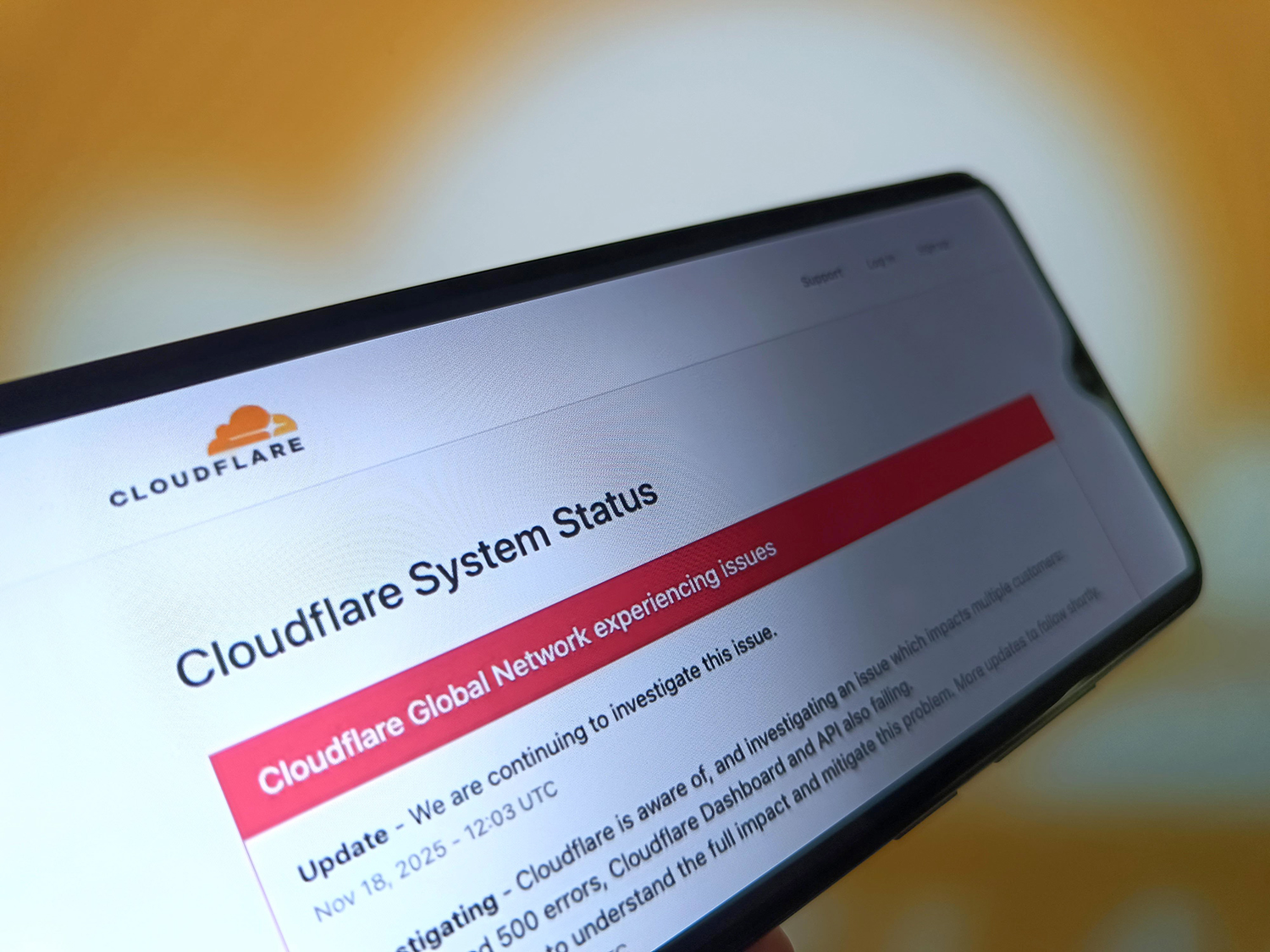Are self-driving cars still an impossible dream?
State-of-the-art robot cars still ’struggle’ with construction sites, animals, traffic cones and pedestrian crossings

A free daily email with the biggest news stories of the day – and the best features from TheWeek.com
You are now subscribed
Your newsletter sign-up was successful
For years, we’ve been told that self-driving cars are just around the corner. But it’s time to accept the truth, said Darrell Etherington on TechCrunch: they “aren’t going to happen” in our lifetimes.
I’ve long been excited about the potential of this technology, but my remaining optimism finally left me last month when Ford and Volkswagen announced they were winding up Argo AI, their autonomous driving-tech joint venture. Argo was considered a leader in the field. But Ford feels that “profitable, fully autonomous vehicles at scale are a long way off”, and it could no longer stomach the spiralling costs.
This is just the latest setback. True, Google spinoff Waymo and GM’s Cruise are still making progress in trialling driverless vehicles on the roads, but these are on a small scale. Tesla is pushing ahead with its self-driving technology, but its ambitions may be curbed by a criminal inquiry that is looking into more than a dozen accidents involving its “Autopilot” system.
The Week
Escape your echo chamber. Get the facts behind the news, plus analysis from multiple perspectives.

Sign up for The Week's Free Newsletters
From our morning news briefing to a weekly Good News Newsletter, get the best of The Week delivered directly to your inbox.
From our morning news briefing to a weekly Good News Newsletter, get the best of The Week delivered directly to your inbox.
“Some of the most fervent believers” in self-driving technology “have turned apostate”, said Max Chafkin in Bloomberg Businessweek. Anthony Levandowski, the former superstar Google engineer convicted of stealing self-driving secrets and taking them to Uber, is now running a start-up developing autonomous dump trucks for use at mining sites, because he thinks “that’s about as much complexity as any driverless vehicles will be able to handle”. State-of-the-art robot cars still “struggle” with construction sites, animals, traffic cones, pedestrian crossings, and sometimes even simple left turns.
Don’t underestimate the incredible technological advances that have been made, said Megan McArdle in The Washington Post. I recently took a ride in a self-driving taxi operated by Waymo in the city of Chandler, Arizona, and was left in awe.
There’s an “undeniable horror-movie aspect” to sitting in the back of a car and watching the steering wheel turn of its own accord. But the car’s ultra-cautious driving style was so flawless, I soon relaxed. “It slowed when other vehicles behaved erratically, and merged with the polite delicacy of a Victorian aunt.” It was so soothing that I got caught up in texting a colleague “and absent-mindedly started to ask the driver how much longer it would be until we got to the restaurant”.
Granted, the taxi was foxed at one point when a truck stopped in front of us and wanted to reverse in order to take a missed turning. Unclear about what to do next, the car “chirped that it was calling a human specialist to resolve the situation”. Fortunately, the truck decided to drive on instead and we proceeded on our way. There’s a reason Waymo is operating in Chandler, “with its wide, straight roads” and predictable sunny weather, but my driverless experience made me believe this “amazing” technology remains worth pursuing
A free daily email with the biggest news stories of the day – and the best features from TheWeek.com
-
 Sepsis ‘breakthrough’: the world’s first targeted treatment?
Sepsis ‘breakthrough’: the world’s first targeted treatment?The Explainer New drug could reverse effects of sepsis, rather than trying to treat infection with antibiotics
-
 James Van Der Beek obituary: fresh-faced Dawson’s Creek star
James Van Der Beek obituary: fresh-faced Dawson’s Creek starIn The Spotlight Van Der Beek fronted one of the most successful teen dramas of the 90s – but his Dawson fame proved a double-edged sword
-
 Is Andrew’s arrest the end for the monarchy?
Is Andrew’s arrest the end for the monarchy?Today's Big Question The King has distanced the Royal Family from his disgraced brother but a ‘fit of revolutionary disgust’ could still wipe them out
-
 Moltbook: The AI-only social network
Moltbook: The AI-only social networkFeature Bots interact on Moltbook like humans use Reddit
-
 Are AI bots conspiring against us?
Are AI bots conspiring against us?Talking Point Moltbook, the AI social network where humans are banned, may be the tip of the iceberg
-
 Silicon Valley: Worker activism makes a comeback
Silicon Valley: Worker activism makes a comebackFeature The ICE shootings in Minneapolis horrified big tech workers
-
 AI: Dr. ChatGPT will see you now
AI: Dr. ChatGPT will see you nowFeature AI can take notes—and give advice
-
 Metaverse: Zuckerberg quits his virtual obsession
Metaverse: Zuckerberg quits his virtual obsessionFeature The tech mogul’s vision for virtual worlds inhabited by millions of users was clearly a flop
-
 The robot revolution
The robot revolutionFeature Advances in tech and AI are producing android machine workers. What will that mean for humans?
-
 Texts from a scammer
Texts from a scammerFeature If you get a puzzling text message from a stranger, you may be the target of ‘pig butchering.’
-
 Blackouts: Why the internet keeps breaking
Blackouts: Why the internet keeps breakingfeature Cloudflare was the latest in a string of outages